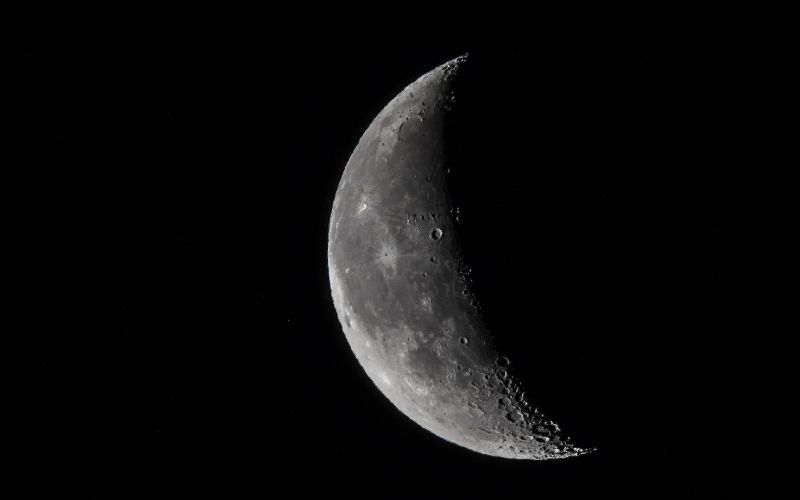
- Details
- By Levi Rickert
“It is crucial to emphasize that the moon holds a sacred position in many Indigenous cultures, including ours,” Nygren wrote in a letter dated December 21, 2023. “The act of depositing human remains and other materials, which could be perceived as discards in any other location, on the moon is tantamount to desecration of this sacred space.”
As Nygren stated, in Navajo culture and other Indigenous tribes across Indian Country, the moon and human remains have long been considered sacred. Therefore, human remains should stay on the Earth and not be sent to the moon.
The issue is not new. In the late 1990s, former Navajo Nation president Albert Hale objected when NASA sent the ashes of a former astronaut to the moon.
At the time, NASA agreed to consult the Navajo Nation in case the issue ever arose again.
Even with the Biden-Harris administration’s commitment to conducting tribal consultation on matters impacting tribal nations, NASA did not consult the Navajo Nation until Nygren issued the Dec. 21 letters.
The issue happening so close to the holidays probably did not help matters. Or the government was caught off guard by Nygren’s objection.
NASA held a press call on January 6, 202,4, on which NASA Deputy Associate Administrator for Exploration Joel Kearns said that although NASA takes the concerns of the Navajo Nation very seriously, it has little oversight over a mission run by a private company.
It turns out a private company, Celestis, is sending the human remains to the moon.
The response by the company’s CEO and co-founder Charles Chafer shows a clash in cultures. His belief system is far different from Indigenous thinking.
“The regulatory process that approves space missions does not consider compliance with the tenets of any religion in the process for obvious reasons. No individual religion can or should dictate whether a space mission should be approved,” Chafer said in an emailed statement to Space.com.
He continued by bringing religion into the conversation.
“No one, and no religion, owns the moon, and, were the beliefs of the world’s multitude of religions considered, it’s quite likely that no missions would ever be approved,” Chafer added. “Simply, we do not and never have let religious beliefs dictate humanity’s space efforts — there is not and should not be a religious test.”
The last I knew, being a Navajo citizen does not constitute being part of a religion. I know many Navajo citizens who are Christians and still subscribe to their Indigenous cultural beliefs that are not part of any particular religious faith.
On its website, the company’s marketing states: “The Celestis memorial capsules carrying cremated remains and DNA will remain on the Moon as a permanent tribute to the intrepid souls who never stopped reaching for the stars.”
The company offers to send human ashes to four destinations, starting at $2,495, with flexible payment plans.
Chafer’s response is condescending and insensitive to the beliefs of Navajo and other Indigenous people who hold the moon in higher regard than he does.
The culture clash bled over to comments Native News Online received after we published an article on Nygren’s objections to the mission on December 31, 2023.
One reader wrote: “The Navajo are shamefully regressive.”
In an interview with Native News Online’s weekly stream Native Bidaské, Nygren said he told NASA that he, for one, “will never say we shouldn’t explore, we shouldn’t visit the stars, visit the planets and really push science and technology and creativity. It’s through technologies like that we’re able to do video conferencing today. But there are certain things like there’s only one Earth, and there’s no other human being like us.”
The White House and NASA assured Nygren that the Navajo Nation will be consulted in the future when the issue arises again.
The federal government needs to monitor what commercial private companies are shipping to the moon.
There are some things more important in life than making money off people who want to dwell among the stars.
Thayék gde nwéndëmen - We are all related.
More Stories Like This
The Lie We Keep Telling About Wounded KneeAnother Weapon of Mass Destruction
Colorado cannot heal until it confronts Sand Creek honestly
Native American Mothers Deserve to Live
Technology Rooted in Tradition is Strengthening Cherokee Nation
Help us defend tribal sovereignty.
At Native News Online, our mission is rooted in telling the stories that strengthen sovereignty and uplift Indigenous voices — not just at year’s end, but every single day.
Because of your generosity last year, we were able to keep our reporters on the ground in tribal communities, at national gatherings and in the halls of Congress — covering the issues that matter most to Indian Country: sovereignty, culture, education, health and economic opportunity.
That support sustained us through a tough year in 2025. Now, as we look to the year ahead, we need your help right now to ensure warrior journalism remains strong — reporting that defends tribal sovereignty, amplifies Native truth, and holds power accountable.
 The stakes couldn't be higher. Your support keeps Native voices heard, Native stories told and Native sovereignty defended.
The stakes couldn't be higher. Your support keeps Native voices heard, Native stories told and Native sovereignty defended.
Stand with Warrior Journalism today.
Levi Rickert (Potawatomi), Editor & Publisher

